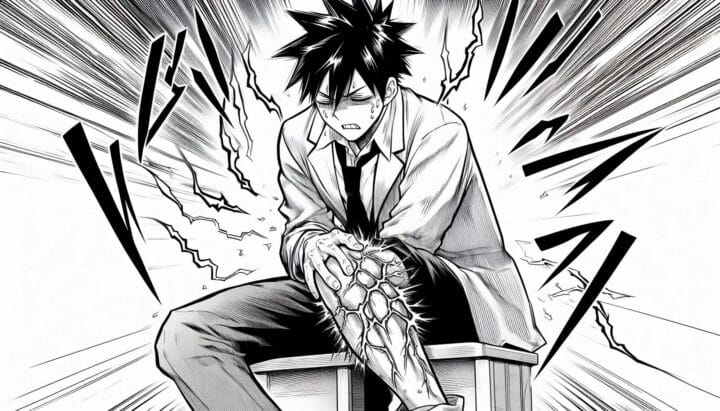Does Arthritis Cause Muscle Pain in Legs?
Table of Contents

Does Arthritis Cause Muscle Pain in Legs?
Ever wondered if that nagging pain in your leg muscles could be related to arthritis? You’re not alone. Many people with arthritis experience muscle pain in their legs, but the connection isn’t always clear-cut. Let’s dig into this topic and unravel the mystery.
The Arthritis-Muscle Pain Connection
Arthritis primarily affects joints, but it can indirectly cause muscle pain in your legs. Here’s how:
- Joint inflammation leads to muscle tension
- Reduced mobility causes muscle weakness
- Pain avoidance alters movement patterns
Types of Arthritis That Can Cause Leg Muscle Pain
Not all arthritis is created equal when it comes to leg muscle pain. Some types are more likely to cause this symptom:
Rheumatoid Arthritis (RA)
RA can cause widespread inflammation, affecting muscles as well as joints.
Osteoarthritis (OA)
OA in knee or hip joints can lead to compensatory muscle strain in the legs.
Psoriatic Arthritis
This type can cause enthesitis – inflammation where tendons and ligaments attach to bones.
How Arthritis Leads to Leg Muscle Pain
Arthritis can cause leg muscle pain in several ways:
- Direct inflammation: Some types of arthritis can cause muscle inflammation.
- Compensatory strain: When joints hurt, you may move differently, straining muscles.
- Inactivity: Pain can lead to reduced activity, causing muscle weakness and pain.
- Referred pain: Joint pain can sometimes be felt in nearby muscles.
Symptoms of Arthritis-Related Leg Muscle Pain
How do you know if your leg muscle pain is from arthritis? Look for these signs:
- Pain that worsens with joint movement
- Muscle stiffness, especially in the morning
- Weakness in leg muscles
- Fatigue that affects your legs
Distinguishing Arthritis Pain from Other Leg Pain
Not all leg pain is arthritis-related. Here’s how to tell the difference:
Arthritis Pain
- Often worse in the morning or after inactivity
- Improves with gentle movement
- Accompanied by joint stiffness
Other Causes of Leg Pain
- May be sharp or sudden
- Often related to specific activities
- Can include symptoms like swelling or redness
Managing Arthritis-Related Leg Muscle Pain
Don’t let leg muscle pain slow you down. Try these strategies:
- Gentle exercise: Keep those muscles moving to prevent stiffness.
- Stretching: Improve flexibility and reduce muscle tension.
- Heat therapy: Warm up those muscles to ease pain.
- Cold therapy: Reduce inflammation with ice packs.
- Medications: Talk to your doctor about pain relief options.
The Role of Physical Therapy
Physical therapy can be a game-changer for arthritis-related leg muscle pain. Here’s why:
- Strengthens muscles around affected joints
- Improves flexibility and range of motion
- Teaches proper movement techniques
Lifestyle Changes to Reduce Leg Muscle Pain
Small changes can make a big difference:
- Maintain a healthy weight
- Stay hydrated
- Get enough sleep
- Manage stress
When to See a Doctor
Don’t ignore persistent leg muscle pain. See a doctor if:
- Pain is severe or getting worse
- You have difficulty walking
- There’s noticeable swelling or redness
- Pain is accompanied by fever
The Future of Arthritis and Muscle Pain Management
Research is ongoing to better understand and treat arthritis-related muscle pain. New therapies on the horizon include:
- Targeted anti-inflammatory medications
- Advanced physical therapy techniques
- Personalized exercise programs
Conclusion
Arthritis can indeed cause muscle pain in your legs, but it’s not a simple cause-and-effect relationship. Understanding the connection between arthritis and leg muscle pain is key to managing your symptoms effectively. Remember, you’re not alone in this journey. With the right strategies and support, you can keep moving and enjoy life, arthritis or not.
FAQs
- Can arthritis in my hips cause muscle pain in my calves?
Yes, arthritis in your hips can lead to altered walking patterns, which may cause muscle strain in your calves. - Is it normal for arthritis pain to move around in my legs?
Arthritis pain can indeed move around, especially in conditions like rheumatoid arthritis that affect multiple joints. - Can losing weight help with arthritis-related leg muscle pain?
Absolutely. Losing excess weight reduces stress on your joints and muscles, potentially easing pain. - Are there specific exercises I should avoid if I have arthritis and leg muscle pain?
High-impact exercises might exacerbate pain. It’s best to consult with a physical therapist for personalized advice. - Can diet affect arthritis-related leg muscle pain?
Yes, an anti-inflammatory diet may help reduce overall inflammation in your body, potentially easing muscle pain.
Citations:
[1] https://www.arthritis.org/health-wellness/healthy-living/managing-pain/understanding-pain/musculoskeletal-pain-and-arthritis
[2] https://www.nuvancehealth.org/health-tips-and-news/leg-pain-arthritis-or-peripheral-artery-disease
[3] https://www.brunet.ca/en/health/health-tips/arthritis-pain-or-muscle-pain-how-tell-the-difference/
[4] https://www.mayoclinic.org/symptoms/leg-pain/basics/causes/sym-20050784
[5] https://my.clevelandclinic.org/health/symptoms/leg-pain
[6] https://www.mayoclinic.org/diseases-conditions/arthritis/in-depth/arthritis/art-20046440
[7] https://www.baptisthealth.com/blog/health-and-wellness/how-to-prevent-arthritis
[8] https://www.webmd.com/rheumatoid-arthritis/ra-dont-ignore-symptoms













Post Comment